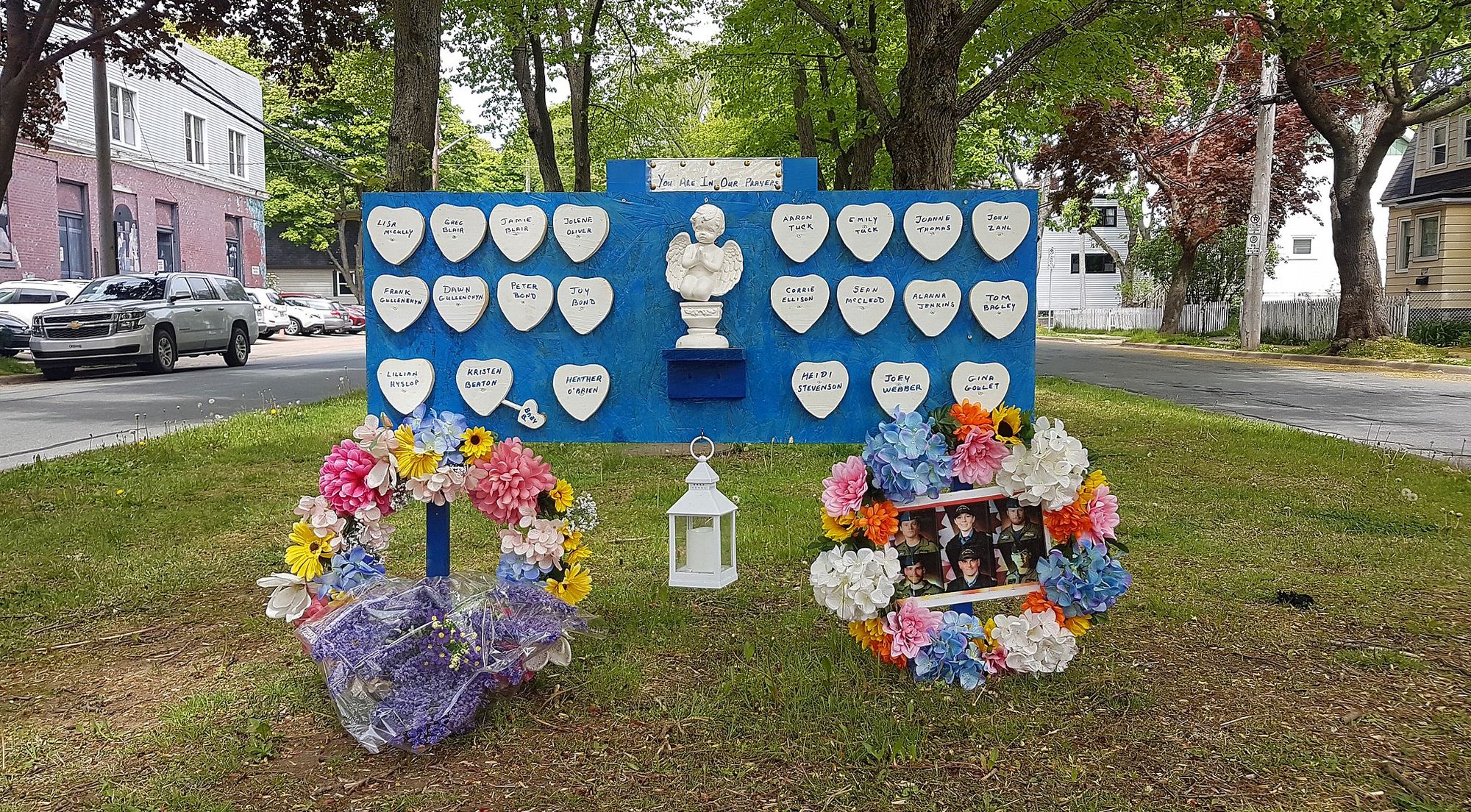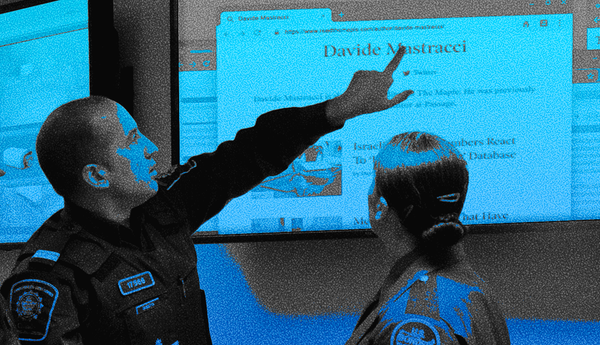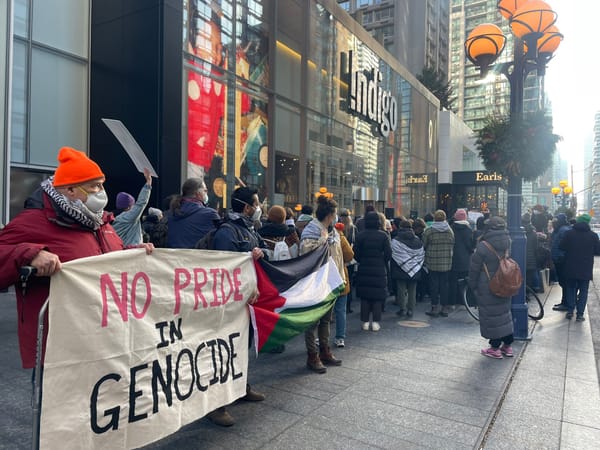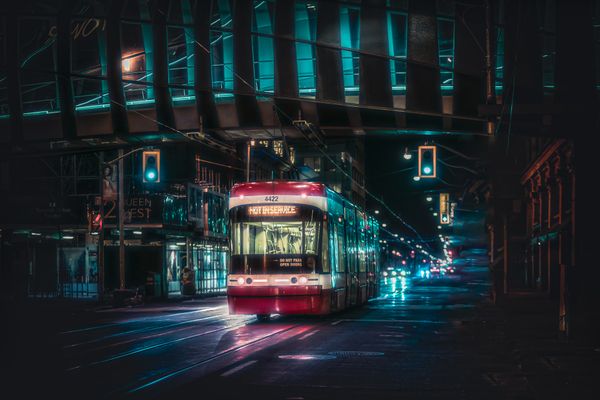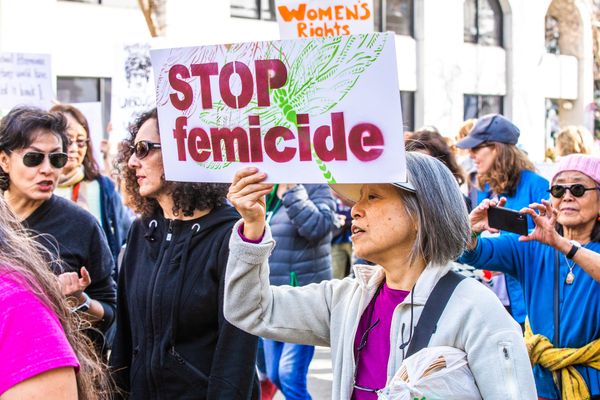Twenty-two people were killed in April 2020 when a mass shooter went on a rampage stretching over two days, driving through Nova Scotia in a fake RCMP car. Yet for much of the time the Mass Casualty Commission — the official, horribly sterile name for the inquiry into the murders — has been underway, it has largely been ignored by national media. No national columnists are sitting though hearings, and no high profile reporters have been flown out to Halifax to hear testimony day after day. It has mostly been left to local and regional coverage.
But then came along the worst of all things to befall an investigation into the murder of 22 people involving a litany of police failures that might have otherwise saved lives, that scourge of all mass killings: political interference. And, in this case, the whiff of a Trudeau scandal.
Nova Scotia Supt. Darren Campbell gave a press conference the week after the killings where he was asked what type of guns the killer used. Campbell declined to answer, saying the investigation was ongoing. According to notes he took later that day, he was then taken to task by RCMP Commissioner Brenda Lucki.
“The Commissioner said she told Comms to tell us at H Division to include specific info about the firearms used by (the killer). … However I said we couldn’t because to do so would jeopardize ongoing efforts to advance the U.S. side of the case as well as the Canadian components of the investigation. Those are facts and I stand by them,” Campbell wrote, according to the independent local outlet the Halifax Examiner, which broke the story.
Campbell went on (and here’s where the scandal begins): “The Commissioner said she had promised the Minister of Public Safety and the Prime Minister’s Office that the RCMP (we) would release this information. […] The Commissioner then said that we didn’t understand, that this was tied to pending gun control legislation that would make officers and the public safer.”
When you get to the bare bones of it, what’s being asked here is for a police force to be more transparent with the public. The reasons for it are maybe stupid and craven — gun control in this case would be no substitute for a police force with some basic competence, or even just regard for the public — but the general idea here is that the public should have more information.
Here’s National Post opinion editor Carson Jerema describing the situation in a column published yesterday: “Pressuring the RCMP to release details about the guns used in the Nova Scotia mass shooting in order to engineer support for gun-control rules, as Prime Minister Justin Trudeau’s Liberals are accused of doing, shows, yet again, that this government is no place for anyone with a sense of ethics. It will always place the party before what’s best for the country, and the leader above all else — a corrupting influence that either brings members of the government down to a level where their previous selves would not recognize them, or expels them for heresy.” He goes on to describe this as “arguably the government’s most egregious scandal to date.”
This is maybe an extreme example, but it’s not that far outside the general tone of coverage of the situation.
Reading the latest stories, it’s easy to forget we’re talking about an inquiry into gross police incompetence that led to 22 people being killed. We’re supposed to trust the RCMP’s judgement on what the public should know?
One of the key failures of the RCMP during the mass shooting was its inability to communicate with the public. There was a killer on the loose, dressed as a Mountie in a replica police car, and at no point was the public warned on the province’s alert system. One woman was shot on the side of the road as she took a walk while the killer had been on the loose for hours.
At no point was the RCMP forthcoming with information after the killings, either. Last week, the CBC reported: “The RCMP intentionally held back key details — including the number of victims — and evaded questions officers knew the answers to in the early days following the Nova Scotia mass shooting in April 2020, a public inquiry into the tragedy has found.”
Second, and more broadly, police hide information from the public all the time, claiming it might interfere with their investigations. This is typically just a useful dodge — for the police, to be clear — to keep information from the public when they’ve screwed up in some way. Police act on the unstated premise that the less the public knows, the better.
Taking police assertions at face value that naming the types of weapons the killer used would have jeopardized the investigation is almost impossible to believe. Particularly, as noted by the Examiner, because neither of the two men who got the killer his illegal weapons have yet to be charged with a crime.
The scandal at the root of the inquiry is the RCMP’s inability to first recognize the numerous warning signs the killer was about to go on a rampage, and then when it did start, not being able to stop him sooner or warn the public while he was on the loose. Whether the government pressured the Mounties to tell the public what kind of guns were used is essentially irrelevant in this scenario.
Police are functionally unaccountable to the public, in part because politicians are too timid to put them in their place. Police forces have taken the idea that politicians should stay out of the justice system because it taints the law too far, and operate with contempt for the public, with impunity.

